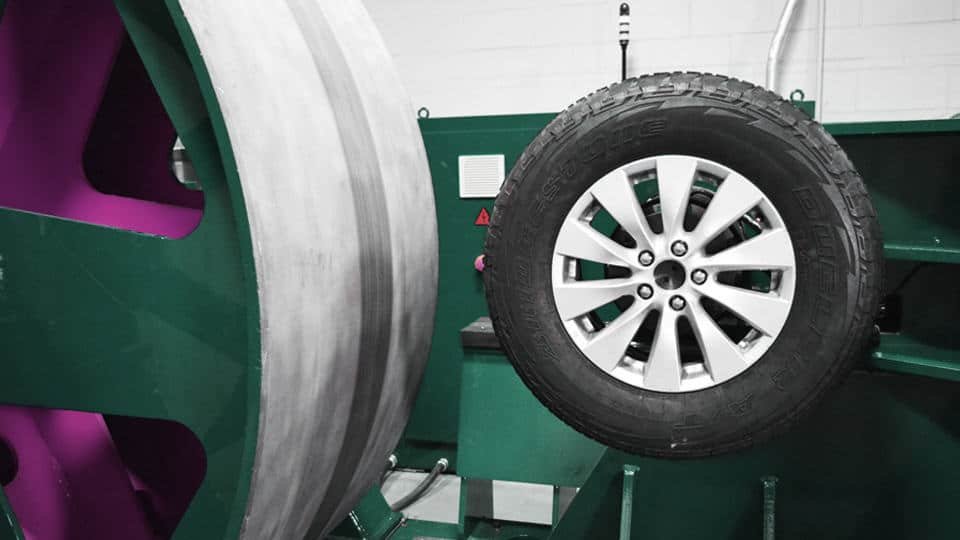Bridgestone Tires
Quality, Innovation, and Sustainability
Bridgestone Corporation, a global leader in tire manufacturing, traces its roots back to Kurume, Japan, where it was founded in 1931 by Shojiro Ishibashi. The company’s name, “Bridgestone,” is a literal translation of Ishibashi, which means “stone bridge” in Japanese. This name was chosen to signify the strength and durability of their products, a principle that continues to define Bridgestone’s legacy in the tire industry.
Over the decades, Bridgestone has grown from a small local business to a multinational powerhouse, with a presence in over 150 countries worldwide. This remarkable journey of expansion and success is a testament to Bridgestone’s unwavering commitment to quality, innovation, and customer satisfaction.
Milestones and Key Developments
Bridgestone acquire Firestone Tire & Rubber Company in 1988
Bridgestone’s journey has been marked by numerous milestones and key developments that have shaped the company’s trajectory and solidified its position as an industry leader. One of the pivotal moments in Bridgestone’s history was the acquisition of the Firestone Tire & Rubber Company in 1988. This strategic move significantly expanded Bridgestone’s global footprint and reinforced its standing as one of the largest tire manufacturers in the world.
Additionally, Bridgestone’s foray into motorsports has been instrumental in showcasing its technological prowess. The company’s involvement in Formula One racing, for example, has not only led to numerous victories but has also served as a testing ground for innovative tire technologies that eventually find their way into consumer products.
Product Range and Specializations
Technology and Innovation
Pioneering Tire Technology
Bridgestone has long been at the forefront of tire technology, pushing boundaries and setting new standards for performance, safety, and durability. The company’s state-of-the-art research and development centers are hubs of innovation, where scientists and engineers work tirelessly to develop cutting-edge tire technologies.
One of Bridgestone’s notable innovations is its run-flat tire technology, which allows a vehicle to continue driving even after a puncture, providing drivers with added peace of mind and safety. This innovation has revolutionized the tire industry, setting a new benchmark for reliability.
Bridgestone’s investment in advanced materials and manufacturing processes has also played a crucial role in enhancing tire performance. The incorporation of silica compounds, for instance, has led to improved traction, fuel efficiency, and overall longevity of Bridgestone tires.
Driving Sustainability
Bridgestone’s notable innovations is its run-flat tire technology, which allows a vehicle to continue driving even after a puncture
Bridgestone is deeply committed to environmental sustainability, and this commitment permeates every aspect of its operations. The company has implemented a range of eco-friendly initiatives aimed at reducing its environmental footprint.
One such initiative is the use of sustainable materials in tire production. Bridgestone has been at the forefront of developing tires made from natural rubber, sourced in an environmentally responsible manner. This not only reduces dependence on synthetic materials but also supports sustainable rubber farming practices.
Furthermore, Bridgestone places a strong emphasis on tire recycling and repurposing. The company actively promotes the recycling of end-of-life tires, transforming them into various products, including sports surfaces and playgrounds. This circular approach to tire usage aligns with Bridgestone’s commitment to a greener, more sustainable future.
Safety and Quality
Prioritizing Safety: Bridgestone’s Tire Safety Initiatives
Safety is paramount at Bridgestone, and the company spares no effort in ensuring that its tires meet the highest standards of safety. Rigorous testing procedures and quality control measures are implemented throughout the manufacturing process to guarantee that every Bridgestone tire provides reliable performance and protection on the road.
Bridgestone’s commitment to safety is further exemplified by its investment in technologies like Tire Pressure Monitoring Systems (TPMS). These systems alert drivers to any underinflation issues, helping to prevent accidents and extend tire life.

Uncompromising Quality: The Rigorous Testing Processes Behind Every Tire
Bridgestone’s reputation for quality is a result of its unwavering dedication to excellence. Each tire undergoes a series of comprehensive tests to ensure that it meets Bridgestone’s exacting standards.
These tests encompass a range of factors, including durability, traction, wet and dry handling, and noise levels. Additionally, Bridgestone conducts extensive performance evaluations in various real-world driving scenarios to guarantee that their tires perform reliably in all conditions.
In Conclusion, Bridgestone Corporation stands as a beacon of excellence in the tire industry, with a rich history, a commitment to innovation, a diverse product range, and an unwavering focus on safety and quality. From its humble beginnings in Japan to its global presence today, Bridgestone’s journey is a testament to the power of determination and a relentless pursuit of perfection. With a product lineup tailored to meet the diverse needs of drivers worldwide, Bridgestone continues to lead the way in tire technology, setting new benchmarks for performance, sustainability, and safety. As we look to the future, Bridgestone’s dedication to innovation and sustainability promises to shape not only the tire industry but also the way we travel and interact with the world around us.











































